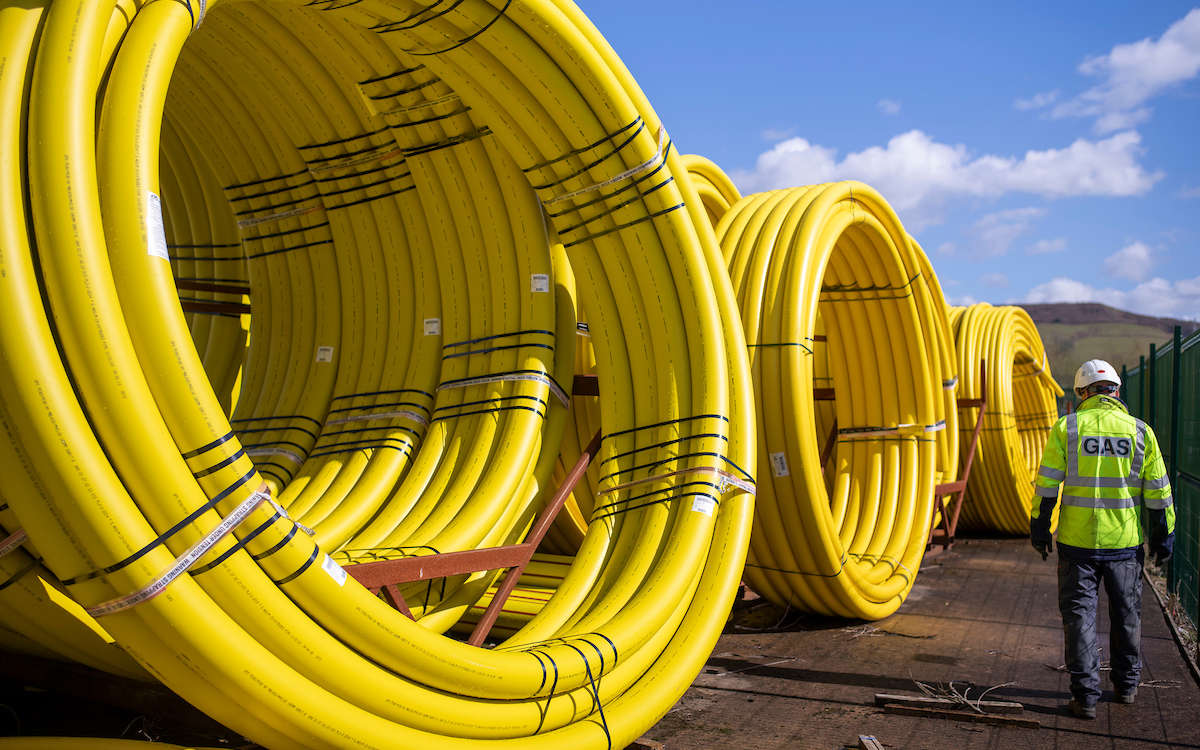
Information for businesses affected by gas-pipe-replacement work
We are investing in our network of gas pipes to maintain and improve our service. While we are working, we want to make sure local businesses can operate as normal. If you have any questions about our work, you can contact our customer service team on 02921 678 455 or Freephone 0800 912 2999 and they will be happy to help.
We know our work affects the communities in which we operate but we plan carefully to keep this to a minimum.
Please see our common questions and answers, below, for more information.
To continue to provide a safe and reliable gas network we have to continually invest in and improve our existing assets. It is important that we replace our old gas pipes, and street works are an inevitable part of carrying out that work.
Whenever possible, we use new technology to help reduce disruption as much as possible, such as inserting new pipes inside the old pipes. This can reduce the number of excavations needed, speed up the process and minimise the need to manage traffic (traffic lights and so on).
Sometimes this can be done. However, there are often reasons why it just isn't possible. For example sometimes different utility pipes and cables need to be placed in different locations for important reasons. Or the technology being used means we don’t need to dig trenches to carry out our work.
We plan our street works in full consultation with local authorities, making every effort to reduce the effect as far as possible. Like other utilities carrying out street works, we need to tell local authorities about all planned work and how long it will last. We hold regular meetings with local authorities and other utilities to discuss plans and, where possible, look for opportunities to co-ordinate activities.
We always try to keep businesses, local people and motorists informed of any major planned work in their area. We write to people to let them know what we are planning and, where appropriate, visit properties personally. Sometimes, we organise public exhibitions to explain about our plans and why work is needed. This offers people an opportunity to ask questions and discuss more of the detail.
Once our work has started, we put up signs to help direct motorists and pedestrians to safe and alternate routes, and offer a helpline phone number for people to call if they have any concerns.
We also provide information on our work to AA Roadwatch and the local media.
We need to be aware of, and understanding towards, the needs of businesses, residents and the wider community. We need to make sure that noisy work is carried out so as not to be particularly intrusive or antisocial.
Often, the scale and extent of our projects means we have to use heavy plant and equipment. To allow room for the safe movement and maintenance of our equipment is very important.
At the same time, the safety of the public and our engineering teams is our main priority, particularly important on roads where there is heavy traffic flow.
The location of our gas pipes also affects what we need to do. We try to reduce disruption as far as possible, and the amount of road space we take up will vary as our projects progress. However, safety is always our first priority.
There could be a number of reasons for this happening. In some cases, we may feel that leaving a trench open will restrict access but, at a later date, we need access to the pipe in that trench to connect sections onto the new gas pipe. At times like this, we may decide to temporarily fill in the hole to maintain access for vehicles.
There are almost always good reasons for a hole being left open. For example, sometimes it is necessary to access a part of our gas network that connects with work taking place in other streets.
Although it may appear that there is no one working on a site, it doesn't mean we have actually finished our work.
Sometimes, for safety reasons, we have to allow one process to 'settle' before starting the next stage.
Even after the new gas pipe has been installed, we can’t just fill in the ground and leave. We have to lay a temporary surface first and give it time to settle before the top layer (concrete, asphalt and so on) can be laid and set.
Only when this full reinstatement has been carried out is it safe for us to allow traffic to start using that section of the road again.
It is essential that we maintain the gas network and our engineers work hard to reduce disruption to homes and businesses where we are working. However, there will inevitably be some disruption.
You may qualify for compensation if you are a small business relying on customers being able to visit your premises for your business to carry out normal trade.
You must meet certain criteria to make a claim, as set out by the Gas (Streetworks) (Compensation of small businesses) Regulations 1996. You can contact our customer service team for more information on how to apply by calling Freephone 0800 912 2999 or emailing enquiries@wwutilities.co.uk.


